detail profile frank castorf

Riwayat Hidup
Frank Castorf is a German actor, writer, stage and film director and since 1992 the artistic director of the Volksbühne am Rosa-Luxemburg-Platz.
His work is often associated with postdramatic theatre.
Info Pribadi
Peran Yang Di Mainkan Frank Castorf
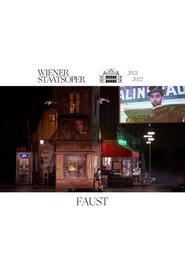 Mphistophls less an intellectual principle of...
Mphistophls less an intellectual principle of...Faust - Wiener Staatsoper 2021
Méphistophélès, less an intellectual "principle of negation" than a devilishly attractive magician, draws his attention to Marguerite - and Faust is delighted. A deal is quickly struck: the devil serves Faust on earth, and after Faust's death it is to be the other way around. Marguerite is also not unimpressed by what Méphistophélès has to offer: material luxury and sensual pleasure, often musically illustrated by Gounod with a waltz. But the relationship between Faust and Marguerite remains an episode, as Faust is drawn to new attractions, while Marguerite remains pregnant, only to see her unfaithful lover kill her brother.
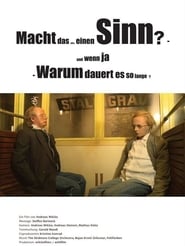 For a quarter of a century...
For a quarter of a century...Does all this make any sense? And if so - why does it take so long? 2019
For a quarter of a century, Frank Castorf has created a microcosm in the Volksbühne that many considered to be an identity-forming fortress and a renegade island in the increasingly chic and monotonous centre of the capital. The marathon productions for which he was responsible were true orgies of association that demanded everything from the audience. The film accompanies Castorf's final season and is there when the theatre people get together once more to start a last fireworks display in the face of an uncertain future. (weltfilm GmbH)
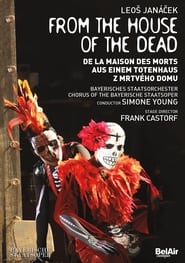 Stage director Frank Castorf might have...
Stage director Frank Castorf might have...Janáček: From the House of the Dead 2018
Stage director Frank Castorf “might have been born to direct From the House of the Dead” (Opera Today). His gritty, visually striking adaptation brings bold modern and postmodern touches to Janáček’s masterwork without ever overshadowing the intense forward momentum of the music, conducted to dramatic perfection by Simone Young and sung by an all-star cast in Munich. Janáček adapted Dostoevsky for this powerfully compelling opera set in a Siberian prison camp, full of starkly contrasting moods and motifs, unusual in its episodic structure. The last opera Janáček ever composed, its third act was on his desk when he died in 1928; attempts by his students to “complete” his orchestration have largely fallen away over the decades in favor of the original version. Despite the grimness of the setting and the brutality of several characters, the composer’s compassion shines through in tender moments, movingly illustrating his motto for the work: “in every creature, a spark of God.”
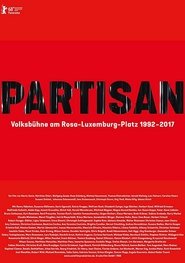 Volksbhne am RosaLuxemburgPlatz 19922017 The end of...
Volksbhne am RosaLuxemburgPlatz 19922017 The end of...Partisan 2018
Volksbühne am Rosa-Luxemburg-Platz 1992-2017. The end of the GDR gave rise to new artistic freedoms in reunited Berlin. Shortly after the fall of the Wall, rebel director Frank Castorf was appointed artistic director of the Volksbühne. His way of working altered the public’s perception of this theater. The chronological history of the Castorf era between 1992 and 2017 is told here in excerpts from the productions and in a series of conversations conducted on the long sofa in the theater's foyer.
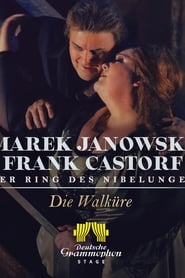 Frank Castorfs staging of the Ring...
Frank Castorfs staging of the Ring...The Ring of the Nibelung: The Valkyrie 2016
Frank Castorf’s staging of the Ring, premiered in 2013 and filmed in 2016, provoked controversy right from the beginning. For Castorf, the Rheingold of our days is oil; thus he places the first part of the tetralogy at a gas station on Route 66. Die Walküre is situated in Baku, Azerbaijan, which was seized by the Bolsheviks in 1920 for its oil, whereas Siegfried takes place in a socialist equivalent of Mount Rushmore and at Berlin’s Alexanderplatz. Götterdämmerung is set somewhere in the GDR, ending up at New York’s stock exchange. Whilst Castorf’s staging polarized, Marek Janowski’s musical reading was unanimously praised, as was the excellent cast including in this opera Iain Paterson (Wotan), Nadine Weissmann (Erda), Albert Dohmen (Alberich) and Roberto Saccà (Loge)
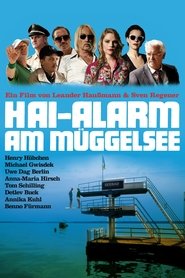 A lifeguard at Lake Mggel has...
A lifeguard at Lake Mggel has...Shark Alarm at Müggel Lake 2013
A lifeguard at Lake Müggel has his hand bitten off and the marks indicate a shark attack. The lake is closed to the public by extending a local festival indefinitely while the city council thinks of what can be done to remove the shark. The public becomes restless having their lake closed for so long and come up with a plan to drive the shark from the lake with large quantities of beer.
 The capital Berlin is heavily in...
The capital Berlin is heavily in...Monte Klamotte - Eine Expedition zum Berliner Schuldenberg 2005
The capital Berlin is heavily in debt. Annually it takes 16 billion euros, but gives out 20 billion. The minus is covered by loans, which in turn attract interest.
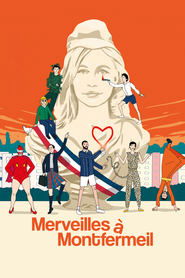 Political rivals try to sabotage a...
Political rivals try to sabotage a...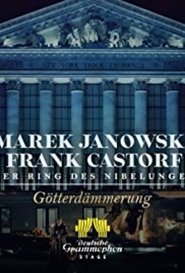
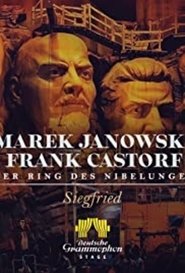
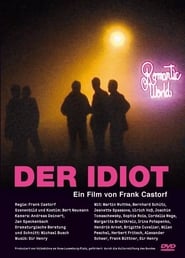 Unites grotesque elements tempo quiet dream...
Unites grotesque elements tempo quiet dream...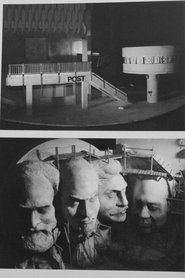 A political drama about the assassination...
A political drama about the assassination...